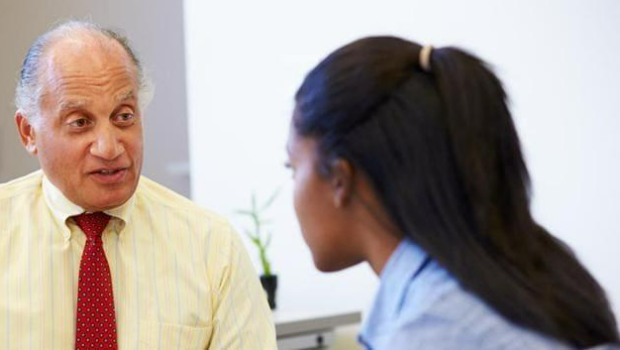Do’s and Don’ts of a Student Counselling Session as a School Student!

Remember, a student counselling session is not therapy. It is a conversation between you and a trained counsellor about anything that might be affecting your life or causing you stress.
Counselling aims to help you understand yourself and your situation better so that you can make positive changes in your life.
Here are some things to remember when you are attending a student counselling session:
Do’s:
- Be honest with your counsellor. They are there to help you, and they can only do that if you are honest with them about what is going on in your life.
- Talk about anything that is on your mind. You can talk about your worries, your fears, your hopes, and anything else that is important to you.
- Be open to trying new things. Your counsellor may suggest some ways of managing stress or dealing with problems that you haven’t thought of before. It’s okay to be open to trying new things – you might be surprised at how well they work for you!
- Take your time. Don’t feel like you have to rush through your counselling session. It is important to take the time you need to explore everything that is on your mind.
- Follow up on what you talk about in your counselling sessions. If you and your counsellor agree on a plan of action, make sure you follow through with it. Counselling is most effective when it is combined with action.
- Be respectful of your counsellor. They are there to help you, and they deserve your respect.
Don’ts:
- Hold back information from your counsellor. If you don’t tell them what is going on, they can’t help you.
- Try to fix everything at once. Counselling is a process, and it takes time. Don’t try to fix everything in one session – focus on one thing at a time, and you will make progress.
- Compare your life to others. Everyone’s situation is different, and it is not helpful to compare yourself to others.
- Be afraid to ask questions. If you don’t understand something, or if you want to know more about something, just ask!
- Take everything your counsellor says as gospel. They are there to offer you advice and guidance, but ultimately, it is up to you to make the decisions in your life.
- Give up. Counselling can be hard work, but it is worth it. If you feel like you are not making progress, talk to your counsellor about it – they can help you find other ways to improve your situation.
When should you seek help from a student counsellor?

If you are finding it hard to cope with day-to-day life, or if you are struggling to cope with a specific situation, it might be time to seek help from a student counsellor. Counselling can be helpful for anyone who is experiencing stress, anxiety, depression, relationship difficulties, or any other problem that is affecting their life.
Some of the most common problems school students face where counselling can help them are:
- Exam stress: If you are finding it hard to cope with the pressure of exams, a student counsellor can help you manage your stress and develop healthy coping mechanisms. These may include things like relaxation techniques, time management tips, and ways to deal with negative thoughts.
- Bullying: If you are being bullied, or if you have witnessed bullying, a student counsellor can provide support and guidance. They can help you develop strategies to deal with the bullying, and they can also provide support for the emotional effects of bullying. If you are a school bully, it doesn’t mean that you will become a criminal one day. Student counselling can help you to understand your behaviour and make positive changes.
- Peer pressure: If you are feeling pressure from your peers to do things that you don’t want to do, or if you are struggling to fit in, a student counsellor can help. They can provide support and guidance on how to deal with peer pressure, and they can also help you to develop a positive sense of self. Sometimes, students only need to learn how to say ‘no’ and still be friends with their peers.
- Relationship difficulties: If you are having difficulty in your relationships with family, friends, crush or romantic partners, a student counsellor can help. They can provide support and guidance on how to communicate effectively, how to resolve conflict, and how to build healthy relationships. They can also help you understand your emotions, and how to deal with them healthily.
- Grief and loss: If you are struggling to cope with the death of a loved one, or with any other kind of loss, a student counsellor can help. They can provide support and guidance on how to deal with your grief, and they can also help you to develop healthy coping mechanisms. Some ways to cope with grief may include things like talking about your loved one, writing about your memories, or spending time with people who care about you.
- Family problems: Many young students, or even teenagers, are ashamed to share their family problems with anyone. But a student counsellor can provide support and guidance on how to deal with anything from parents divorcing to siblings fighting. Sometimes, all you need is someone to talk to who will listen without judgement.
- Body image issues: If you are unhappy with the way you look, or if you are struggling with an eating disorder, a student counsellor can help. They can provide support and guidance on how to develop a more positive body image, and they can also help you analyse what your triggers are. They can also provide information on healthy eating and exercise, and how to develop a healthy relationship with food.
- Sexual identity issues: If you are questioning your sexual identity, or if you are struggling to come to terms with your sexuality, a student counsellor can help. They can provide support and guidance on how to deal with your feelings, and they can also help you to understand your sexuality. Some students get bullied because of their sexual identity, and a student counsellor can provide support for this as well.
If you are struggling with any of these issues, or if you are facing any other difficulties in your life, a student counsellor can help. Don’t suffer in silence – reach out for help today.
Find best tutors from all across the Australia – Sydney, Melbourne, Adelaide, Perth, Newcastle, Goldcoast, Canberra, Brisbane.
To make it easier for you to decide, your first session is completely FREE!
Select and book a tutor for Math, Science, English and all the other subjects.
